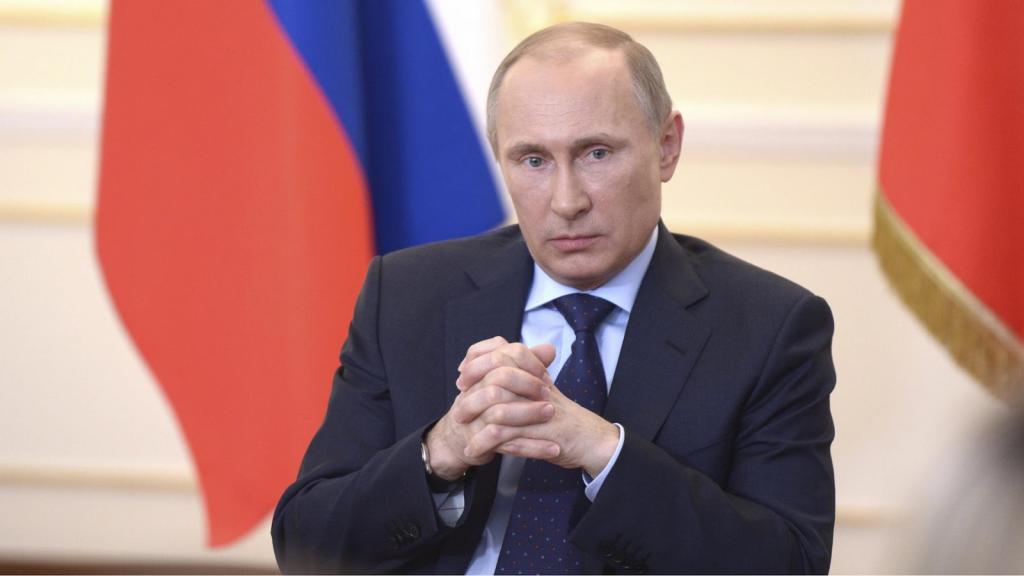Russia-Ukraine War: Why Putin Dared, And The Devastating Flaws Of The International Relations

The second world war ended 75 years ago, wreaking havoc across Europe. In barely over five years of battle, tens of millions of people were massacred, and the whole continent was destroyed. As a result, Europeans are acutely aware of the implications of a continent-wide war.
After such two humongous worldwide catastrophes, we should have learned our lessons, right? As a species? We agreed on an international stage upon the Geneva Convention to preserve and protect basic human rights despite the worst circumstances! We established the United Nations to keep those in check. We have set up International Human Rights Law to elevate how we value human individuals and their right to think and choose freely as a member of sapient species more than ever. Right?
Well, yes! But also not quite! Despite massive progress, one would be gravely mistaken if they were to overlook the history of the imperialist past upon which the current system is built. In this piece, we will explore the flaws of the current system of international relations and how Vladimir Putin took advantage of it.

Dependence of EU
Since Europe was the epicentre of both the World Wars, and there are a vast number of people who either witnessed WW2 or heard first-person testimony about it, their stories and memories about it are pretty fresh. This makes Ukraine’s European allies more unlikely to become militarily involved in this Russo-Ukrainian War.
Unlike the US, since its European allies are much closer to Russia geographically, they are in no way ready to take the tolls of another continent-wide war. As a result, they acknowledge that Russia’s invasion is devastating and illegal and that Ukrainians are suffering. They have only gone so far as to supply Ukraine with weaponry and wish them luck. Some have also announced economic measures against Russia, but Putin understands that the Europeans can only go so far.
The reason behind it seems to be that Europe is dependent on Russia for energy. Russia supplied 38 per cent of the natural gas utilised by the European Union in 2021. As Germany shuts down its many nuclear and coal power facilities, it has become increasingly reliant on Russian gas, which may explain why Germany delayed sending military help to Ukraine until a few days after the invasion began.
Despite the sanctions imposed to counter Putin’s atrocities, Russia’s energy integration with Europe provides him with huge leverage to fight these sanctions. Just by reducing or cutting off natural gas supplies, he could devastate Europe’s biggest economies.
Tension with the US
Throughout the years, the US has helped Ukraine throughout different instances of tension with Russia. Indeed, the US has pushed for Ukraine to join the NATO military alliance, knowing full well that this would aggravate Russia. However, American backing has always been limited to supplying military help or enforcing limited sanctions, and this is unlikely to change either. Since, despite being the world’s most powerful military, the US military has little stomach for fighting the world’s second most powerful military.
Domestically, President Biden understands that the majority of Americans do not want a war with Russia, so during the weeks leading to the attack on Ukraine, the US had been removing the few US troops that were stationed there rather than sending more.
Since 2014, the US has sent more military equipment to Ukraine than any other country, and it has threatened to impose even more sanctions. But, just like with Europe, Putin knows that these restrictions can only go so far. With energy prices already high, the US is hesitant to put real sanctions on Russia’s oil and gas industries, fearing that doing so would result in global shortages and much higher costs, something the US would have to bear as well.
Ineffectiveness of UN
After the tragedies of World War II, the United Nations was founded to foster worldwide peace. The five permanent members of the Security Council—USA, UK, Russia, France, and China, were expected to lead this international order. Probably the most fact about this whole series of illegal invasions, annexation, and war crimes is that Russia is not the first member of the United Nations to ignore International Laws and commit such atrocities. In the previous 20 years, Russia has become the 3rd member of the Security Council to invade a sovereign country.
Despite opposition from most of its own allies and the UN, the US attacked Iraq illegally in 2003, with the UK’s support. The United States did have to face any consequences, just as President Bush had calculated. President Putin is doing the same thing.

If we zoom out a bit more, we can see the same pattern of negligence towards International Laws without any consequence, even without being a superpower like the US, UK, or Russia. For example, Israel has not only illegally occupied land for decades outside its UN-declared territories. Amnesty International & Human Rights Watch both heavily criticised Israel’s violations of humanitarian laws throughout decades. Despite all of that, the US has acknowledged its sovereignty over the Golan Heights, which according to the United Nations, belongs to Syria.
Putin himself has also been testing the limits of international law for years, attacking Georgia in 2008 and occupying Crimea from Ukraine since 2014. All the UN could do was issue resolutions demanding that Russia return the territory. Putin is betting that the invasion of Ukraine will be met with much of the same.
Conclusion
Putin had his own rationalisation for claiming Ukraine is not a separate nation from Russia, and he had been threatening to invade for a long time. When it came to actually attacking Ukraine, Putin chose his timing very carefully. With Europe dependent on Russia for energy, the United States hesitant to go to war, and the UN ineffective, the Russian leader thought he could attack his neighbour without risking World War III.
Follow The Interlude for more.





